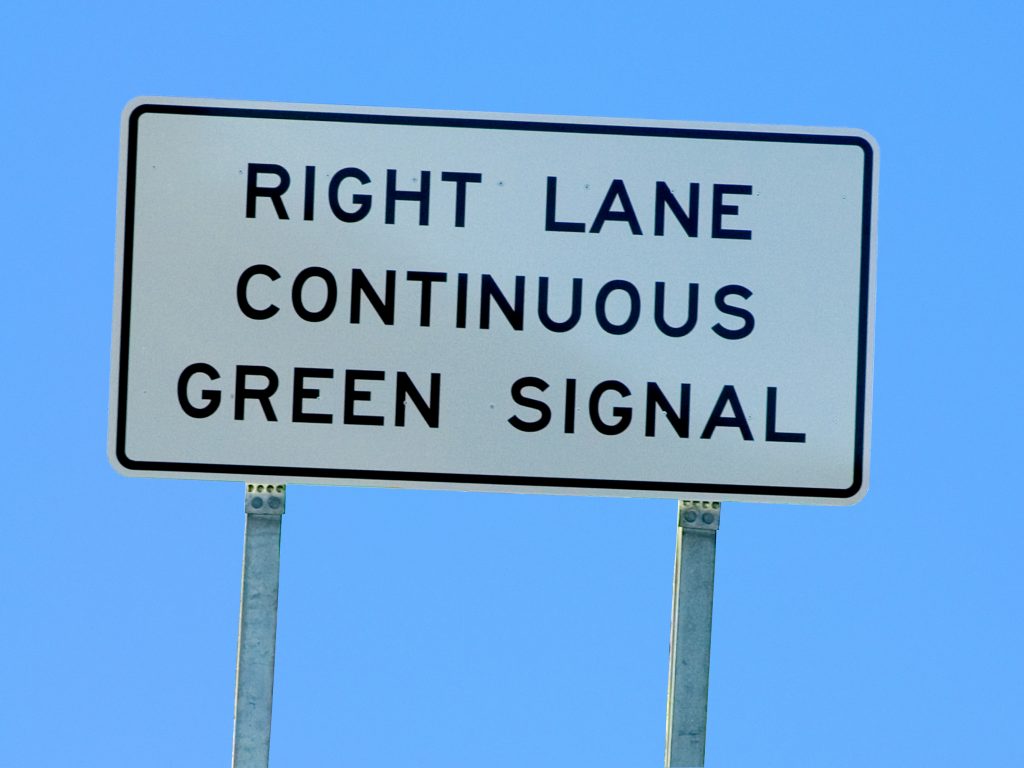 Drivers always have a duty to drive with a standard of care that can ensure the cars immediately around them are safe from a collision. But how far does that duty reach? That was the question when a Parish of Calcasieu man entered the highway from the shoulder which resulted in only the first and second cars behind him to slow down, while a third following car was forced off of the road.
Drivers always have a duty to drive with a standard of care that can ensure the cars immediately around them are safe from a collision. But how far does that duty reach? That was the question when a Parish of Calcasieu man entered the highway from the shoulder which resulted in only the first and second cars behind him to slow down, while a third following car was forced off of the road.
The Defendant, David Majoria, was an employee of Groendyke Transport when he entered Interstate 210 from the shoulder of the road. When Mr. Majoria entered the highway it caused the vehicle behind him with an unknown driver to brake. A second vehicle behind Mr. Majoria was driven by the plaintiff’s brother, who also braked. The third vehicle in the lineup was an eighteen to twenty-foot camper, driven by Plaintiff Shane Maylen.
Mr. Maylen was driving a truck towing an eighteen to a twenty-foot camper and a sixteen-foot boat when he attempted to brake after Mr. Majoria’s car entered the highway. Mr. Maylen’s truck veered off of the highway and onto the shoulder of the road where his vehicle jack-knifed and caused a right-shoulder injury. No other vehicle was involved in the collision.
Mr. Maylen brought a lawsuit, seeking damages against Mr. Majoria, his employer, and the employer’s liability insurer. Mr. Maylen alleged Mr. Majoria’s negligence caused his injuries. After discovery, Mr. Majoria moved for summary judgment. Mr. Majoria contended that since the first and second vehicles behind him avoided the collision, he was not liable for the injuries sustained by the driver of the third vehicle. The Judicial District Court for the Parish of Calcasieu granted Mr. Majoria’s motion for summary judgment. Mr. Maylen appealed to the Louisiana Third Circuit Court of Appeal.
On appeal, Mr. Maylen contended that the Trial Court erred in granting the motion for summary judgment because there was actually a genuinely contested material fact regarding whether Mr. Majoria was liable for Mr. Maylen’s damages.
The Third Circuit applied a duty-risk analysis to determine whether Mr. Majoria was negligent. The duty-risk analysis requires: (1) proof that the defendant had a duty to conform his conduct to a specific standard; (2) proof that the defendant’s conduct failed to conform to the appropriate standard; (3) proof that the defendant’s substandard conduct was a cause-in-fact of the plaintiff’s injuries; (4) proof that the defendant’s substandard conduct was a legal cause of the plaintiff’s injuries; and (5) proof of actual damages. See Boykin v. Louisiana Transit Co., Inc., 707 So.2d 1225 (La. 1998).
The duty of a motorist entering a highway from the shoulder of the road is the same duty of care as a motorist entering the highway from a private driveway. The duty a driver has entering a highway from a private driveway is a primary duty to avoid a collision. See Loveday v. Travelers Ins. Co., 590 So.2d 65 (La. Ct. App. 1991). Louisiana law further provides that a driver of a vehicle about to enter a highway from a private driveway shall yield the right of way to all approaching vehicles so close as to constitute an immediate hazard. La. R.S. 32:124.
When applied to the facts of the case, the Third Circuit again found no liability for Mr. Majoria. Mr. Majoria’s duty was to “yield the right of way to all approaching vehicles so close as to constitute an immediate hazard.” Once Mr. Majoria merged onto the interstate, the first and second vehicles were forced to press their brakes, but neither came to a complete stop or had to travel off of the shoulder of the road and neither was involved in any collision. The evidence showed that Mr. Majoria did not fail to yield to the approaching vehicles so close as to constitute an immediate hazard. This meant that Mr. Majoria did not breach his duty. Mr. Maylen was assessed all costs of this appeal.
While a driver has a duty to the cars immediately surrounding them, it is clear there are limits in the chain of causation to where that duty extends. A good lawyer can sort out the factual details and apply it to the law to give a recommendation on whether to bring a lawsuit or not, which did not happen here. There was a very weak claim and ultimately the plaintiff was assessed all of the costs of an unnecessary appeal which could have been avoided with excellent attorney counseling.
Additional Sources: SHANE MAYLEN AND PENELOPE MAYLEN VERSUS GREAT WEST CASUALTY COMPANY, GROENDYKE TRANSPORT, INC., AND DAVID MAJORIA
Written by Berniard Law Firm Blog Writer: John Trepel
Additional Berniard Law Firm Articles on Louisiana Automobile Accidents: Court Finds Coca-Cola Employee Not Within Scope of Employment During Car Accident in Lafayette
 Louisiana Personal Injury Lawyer Blog
Louisiana Personal Injury Lawyer Blog

